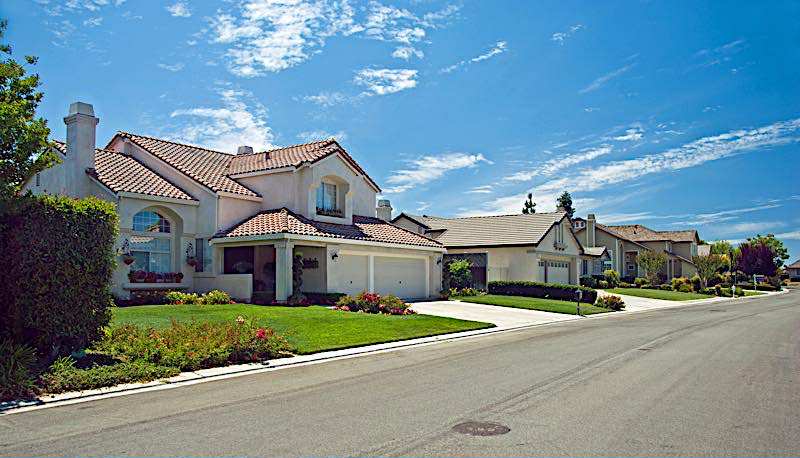The real estate industry is one of the most lucrative sectors in the world, offering multiple paths for investors to build wealth. While strategies like flipping houses, buying rental properties, or developing land are well-known, one lesser-understood but highly profitable strategy is wholesale real estate. This method allows individuals to profit from property transactions without owning or managing the homes themselves.
If you’re interested in learning how wholesale real estate works, why it’s so popular, and how you can get started, this guide covers everything you need to know.
What Is Wholesale Real Estate?
Wholesale real estate is a strategy where an individual, known as a wholesaler, finds a property (usually below market value), negotiates a purchase contract with the seller, and then sells or assigns that contract to another buyer at a higher price. The wholesaler does not buy the property. Instead, their profit comes from the assignment fee, which is the difference between the price negotiated with the seller and the amount the end buyer pays.
Example:
- A wholesaler contracts a house for $180,000.
- They assign the contract to a buyer who pays $195,000.
- The wholesaler keeps a $15,000 assignment fee.
This method allows wholesalers to earn money quickly without investing large sums of capital or managing physical property.
How Does Wholesale Real Estate Work?
The process of wholesaling can be broken into five steps:
1. Finding Motivated Sellers
Wholesalers target property owners who need to sell quickly. These could be people facing foreclosure, landlords tired of managing tenants, or homeowners relocating for personal or professional reasons.
2. Securing the Property Under Contract
Once the seller is identified, the wholesaler negotiates a purchase agreement. This contract must include an assignment clause so that it can legally be transferred to another buyer.
3. Building a Buyer’s List
A successful wholesaler needs a strong network of investors—such as landlords, rehabbers, or flippers—who are ready to buy discounted properties.
4. Assigning the Contract
The wholesaler assigns the contract to a buyer for a higher price. The difference between the contract price and the buyer’s price is the wholesaler’s profit.
5. Closing the Deal
Once the end buyer closes on the property, the wholesaler collects their assignment fee.
Why Is Wholesale Real Estate So Popular?
Wholesaling has grown rapidly in popularity among new and experienced investors because of several advantages:
- Low Capital Requirement – Wholesalers don’t need to secure large mortgages or pay for property renovations.
- Quick Profits – Unlike long-term rental investments, wholesaling often generates profits within weeks.
- No Property Management – Wholesalers avoid the headaches of tenants, repairs, and property maintenance.
- Accessible for Beginners – This is one of the easiest entry points into real estate investing.
- Networking Opportunities – Wholesaling connects investors with buyers, sellers, agents, and attorneys.
Legal Considerations in Wholesale Real Estate
While wholesale real estate is legal in most areas, wholesalers must follow certain rules to avoid legal issues:
- Assignment Clauses: Always include the right to assign in the purchase contract.
- Transparency: Clearly inform the seller that you intend to assign the contract, not purchase the property.
- Marketing Restrictions: In some regions, wholesalers cannot market the property itself without a real estate license but can market the contract.
- Consult a Lawyer: A real estate attorney can help draft legally sound contracts and protect you from compliance issues.
Benefits of Wholesale Real Estate
- Low Risk Exposure: Since wholesalers don’t own the property, they avoid risks related to renovations or market downturns.
- Scalable Business Model: With the right systems, wholesalers can manage multiple deals at once.
- Fast Turnaround: Deals typically close much quicker than traditional property investments.
- Cash Flow Potential: Successful wholesalers often earn thousands of dollars per deal, with some scaling into six-figure businesses.
Challenges of Wholesale Real Estate
Despite its advantages, wholesaling is not without challenges:
- Finding Quality Deals: Competition is tough, and undervalued properties can be hard to find.
- Marketing Effort: Wholesalers often spend significant time and money on lead generation.
- Legal Restrictions: Rules vary by state or province, so compliance is critical.
- Unreliable Buyers: If a buyer backs out, the deal may fall apart.
- Income Fluctuations: Unlike rental income, wholesaling profits can be inconsistent.
Tips for Success in Wholesale Real Estate
- Educate Yourself: Learn about contracts, real estate laws, and negotiation strategies.
- Network Consistently: Build relationships with investors, real estate agents, and attorneys.
- Focus on Marketing: Use direct mail, online ads, bandit signs, and cold calling to find motivated sellers.
- Develop Negotiation Skills: The better your negotiation, the higher your assignment fee.
- Be Ethical: Always be transparent with sellers and buyers to build a reputation for integrity.
Wholesale Real Estate vs. Flipping
Both wholesaling and flipping deal with undervalued properties, but they differ in approach:
- Wholesaling: Assigns contracts without owning the property. Profits are smaller but quicker.
- Flipping: Involves buying, renovating, and selling a property. Profits are larger but riskier and more time-consuming.
For beginners, wholesaling often makes more sense, while flipping suits investors with more experience and capital.
Is Wholesale Real Estate Profitable?
Yes—when done correctly, wholesale real estate can be very profitable. Some wholesalers make between $5,000 and $20,000 per deal, while others scale into businesses generating six figures annually. Success depends on persistence, strong networks, and the ability to find great deals consistently.
Final Thoughts
Wholesale real estate is one of the most accessible and rewarding strategies for both beginner and seasoned investors. With minimal capital, limited risk, and the potential for quick profits, it’s no surprise this method has grown so popular.
By focusing on finding motivated sellers, building a strong buyer’s list, and operating ethically within the law, wholesalers can create a profitable business in the real estate industry. Whether you’re looking for extra income or a stepping stone to bigger investments, wholesale real estate may be the perfect place to start.
